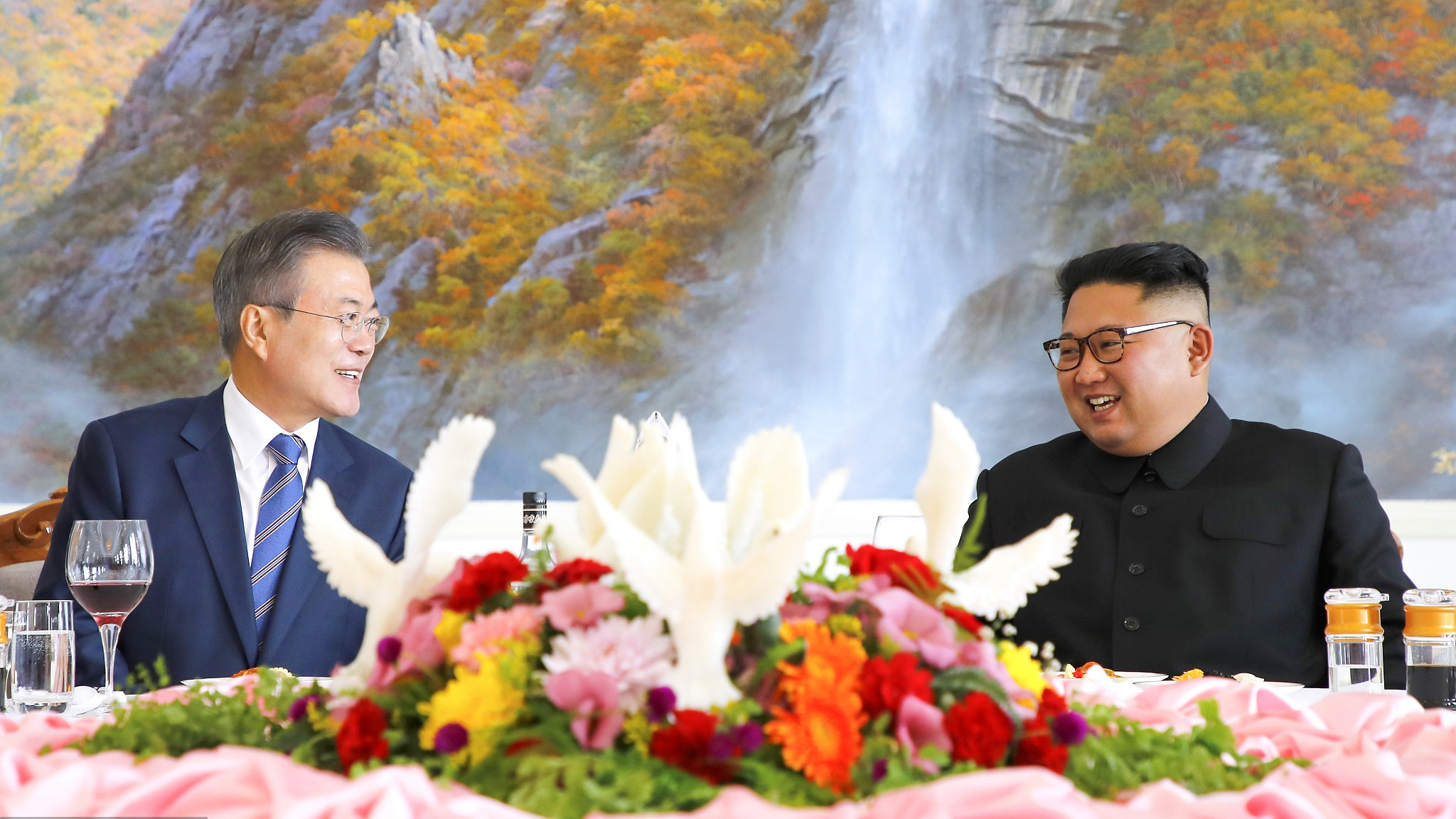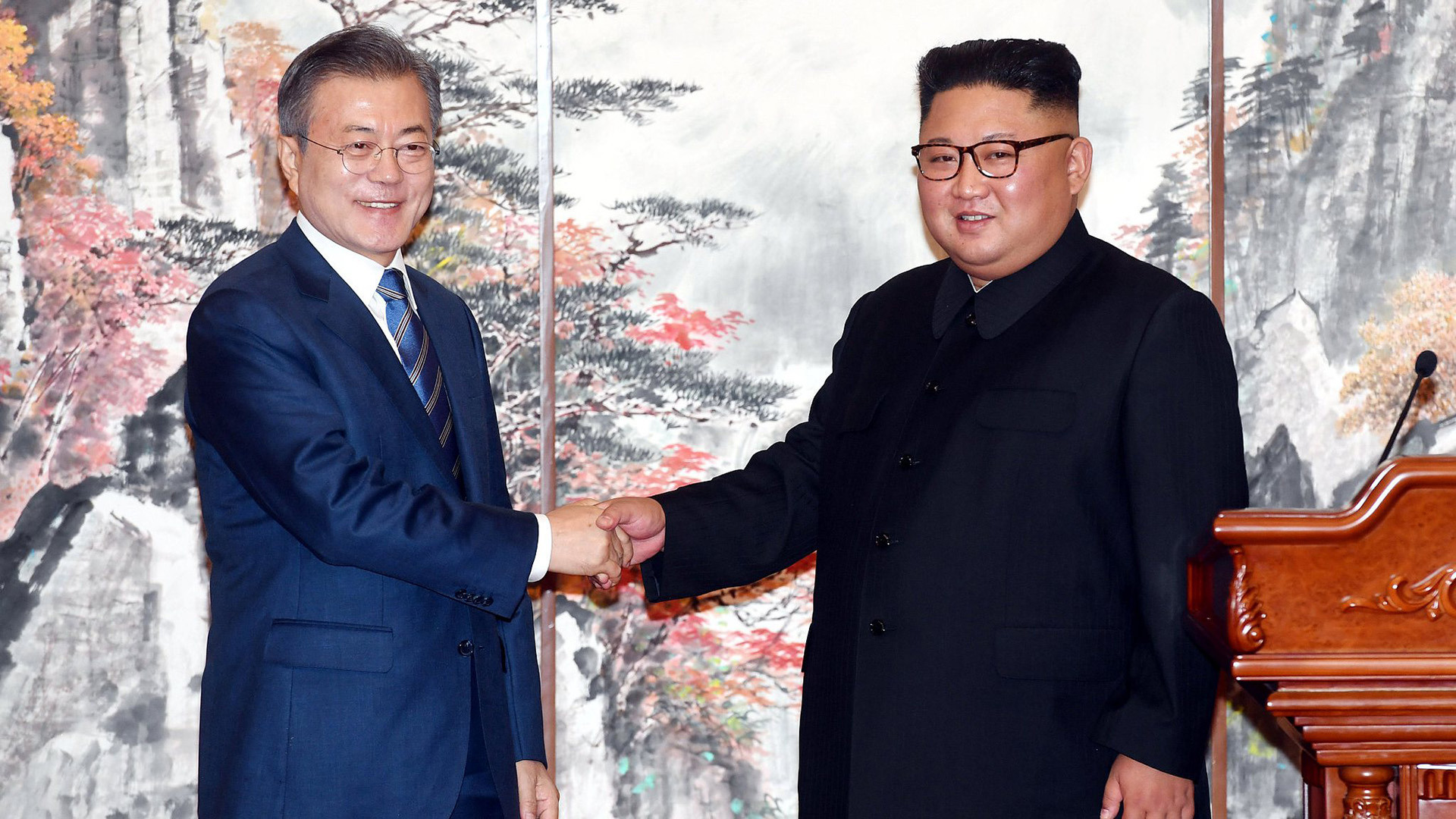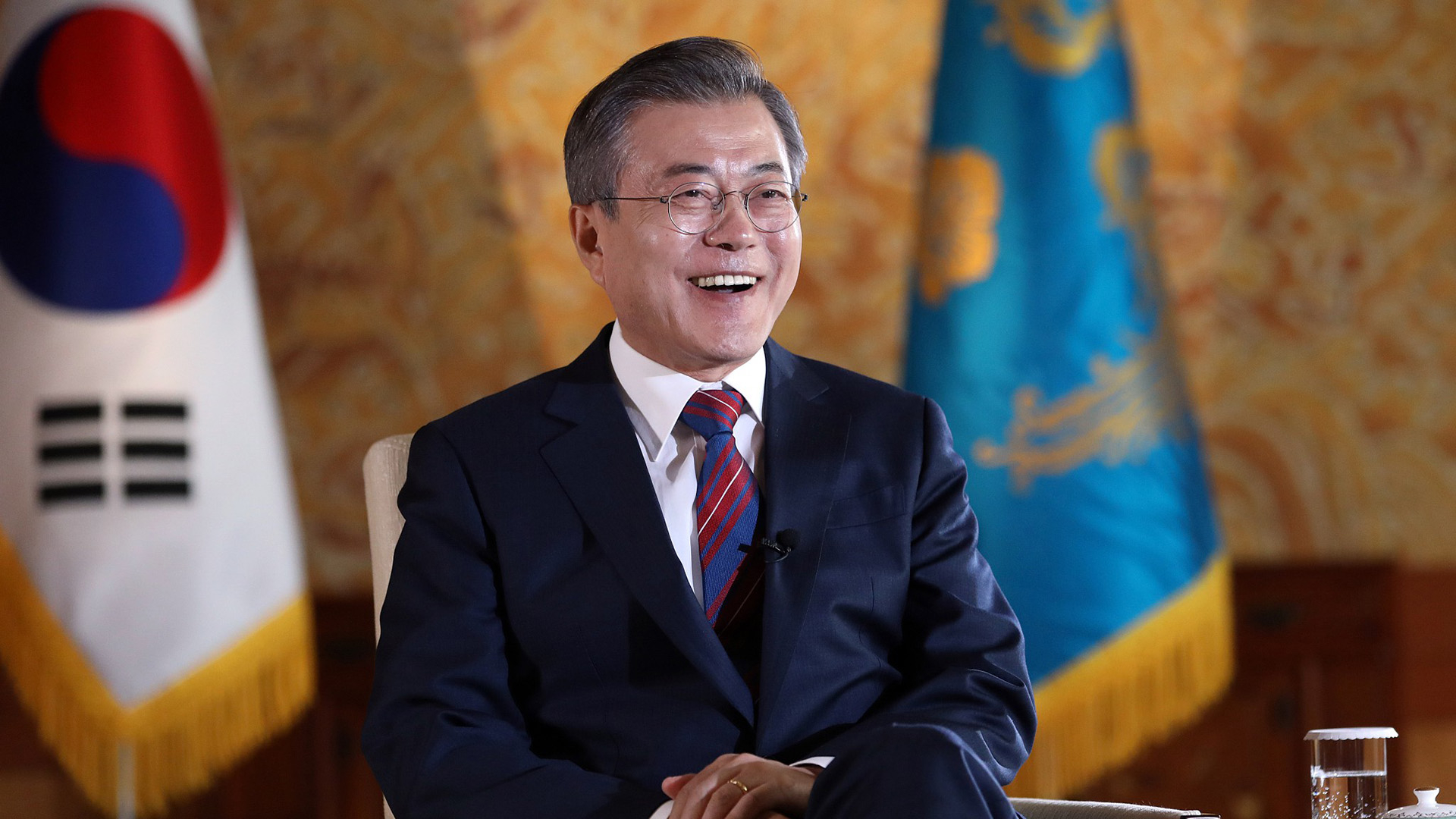
Opinions
07:42, 15-Oct-2018
Opinion: DPRK-ROK high-level talks may accelerate denuclearization process
Updated
07:22, 18-Oct-2018

Editor's note: The article is based on an interview with Cheng Xiaohe, an associate professor at the School of International Studies at the Renmin University of China and a senior researcher with the Pangoal Institution. The article reflects the expert's opinion, and not necessarily the views of CGTN.
The Democratic People's Republic of Korea (DPRK) and the Republic of Korea (ROK) will never be absent from the world stage when it comes to hot news stories.
It has officially been announced that the two sides are expected to hold high-level talks in the truce village Panmunjom on Monday to discuss the implementation of the agreements reached during their previous summit held in Pyongyang.
This is the fifth high-level encounter between the DPRK and the ROK this year. Although from the first meeting between the leaders of the two countries, people have expected to witness the denuclearization to promote the peace process on the Korean Peninsula, the targets are yet to be met.
However, Cheng Xiaohe, an associate professor at the School of International Studies at Renmin University of China and a senior researcher with the Pangoal Institution, said that holding such talks reflects the inter-Korea relations have become much stronger and much more consolidated. The DPRK and the ROK are definitely moving to the direction of reaching peace on the Korean Peninsula despite there are a lot of twists and turns, he said.
01:45

It's fair to say that before the opening of the PyeongChang Winter Olympics, the Korean Peninsula is enveloped with the potential of severe conflicts, while now the DPRK-ROK relations have achieved many breakthroughs, and it is demanding to have such a change.
Actually, the pivotal point for the transformation of the situation on the peninsula is the changes in the DPRK-US and DPRK-ROK diplomatic environment.
After US President Donald Trump took office, he increased military pressure on the DPRK, which also frequently demonstrated its confrontation posture by nuclear and missile tests. Also, the ROK made military preparations by strengthening not only its military strength but also its military alliance with the US.
However, situations have changed since ROK President Moon Jae-in took office. He adjusted its foreign policy... instead of standing on the side of the US and actively preparing for a war, he tried to negotiate with the DPRK.
This move eases the military pressure faced by the DPRK and opens up a channel for dialogue among Seoul, Pyongyang and Washington, which paves the way for denuclearization on the Korean Peninsula.
Currently, the ROK president is on his 9-day visit to EU countries. He will narrate the changes of the situations on the Korean Peninsula and the efforts that ROK's government has made over the past year and to call on all parties to support ROK's policies toward the peninsula during the Asia-Europe Meeting.
01:26

Cheng points out that the EU plays a critical role in helping forward the process of denuclearization. By making the trip to the EU, Moon Jae-in can brief the leaders of those countries with the achievements reached to gain consensus, and "by reaching to European countries, South Korea (ROK) could continue such positive momentum regarding the ongoing DPRK's nuclear and missile issues."
The Pyongyang Declaration signed between the DPRK and the ROK during the latest Kim-Moon summit has further mitigated the situation on the Korean Peninsula. But, there is still a long way to go to resolve the problems related to the region.
However, with the upcoming high-level talks between Seoul and Pyongyang focusing on the implementation of the Declaration, it is predictable that the process of denuclearization on the Korean Peninsula would highly possible to be accelerated.
(If you want to contribute and have specific expertise, please contact us at opinions@cgtn.com.)

SITEMAP
Copyright © 2018 CGTN. Beijing ICP prepared NO.16065310-3
Copyright © 2018 CGTN. Beijing ICP prepared NO.16065310-3